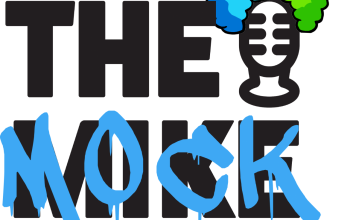Photo Credit: The University of Toronto Logo
A look at the Task Force on Student Mental Health
Rinna Diamantakos, Associate News Editor
The recent tragedy at Bahen Centre has left many students at the University of Toronto (U of T) with questions regarding the university’s mental health policy and how they can access services.
The primary source for mental health information at U of T is the Mental Health Framework. Originally published in 2014 and updated in 2016, the framework outlines the current mental health policy. Acknowledging the large and diverse university community, the report has sought to develop a system of mental health services that not only provides students with adequate resources, but also works to create a university environment that fosters growth and prosperity.
The full report in the Mental Health Framework contains 22 recommendations, that U of T has summarized into five general priorities. These five priorities focus on developing communication strategies that inform students on services, expanding programs that foster positive mental health, developing mental health literacy for students, coordinating and assessing the effectiveness of programs and services to ensure they are accessible, and finally, leveraging external community resources to ensure the needs of all students have been met.
The Mental Health Framework also outlines a number of organizations and events that have been established to aid in achieving these five priorities, including health and wellness resilience groups and mindfulness programming, as well as various projects, such as the Student Voice Project — which is offered by New College as a means to provide a safe space for mental health discussion.
Importantly, the policy outlines the improvement of the Health & Wellness Centre’s mental health program, explaining that the new approach views mental health as a spectrum, where needs are subjective and require a range of resources. The Health & Wellness Centre has also expanded services to 17 new sites across the St. George Campus, including a new location at the University of St. Michael’s College.
Since 2016, other important policy updates have also occurred including the recently introduced Task Force on Student Mental Health.
In an open letter to students published on March 28, 2019, U of T President Meric Gertler announced the implementation of a four-part plan on student mental health and wellness. This new plan was entitled the Presidential & Provostial Task Force on Student Mental Health. Essentially, this new plan was developed to build upon the Mental Health Framework.
Gertler stated in this open letter that there is a need for improvement in mental health services, acknowledging the concerns surrounding the increased percentage of students experiencing mental health issues. In referencing the 2016 National College Health Assessment survey, Gertler called the mental health crisis both a local and national issue that must be addressed.
This four-step action plan has developed the task force, and will work to continue research into campus culture. It will also seek further community engagement and will continue to seek support and funding from the provincial government.
Importantly, this new task force will focus on the input and recommendations of students. From July 12, 2019, to October 15, 2019, the task force was open for student comments and opinions.
The recommendations of the students will then be provided to Gertler in December 2019, with the hope that student involvement in policymaking will not only validate the needs and safety of students, but will foster significant social and cultural change on campus. As such, it can be speculated that in regard to this new task force an update to the mental health policy could potentially take place come 2020 — though this has not been discussed as of yet.




